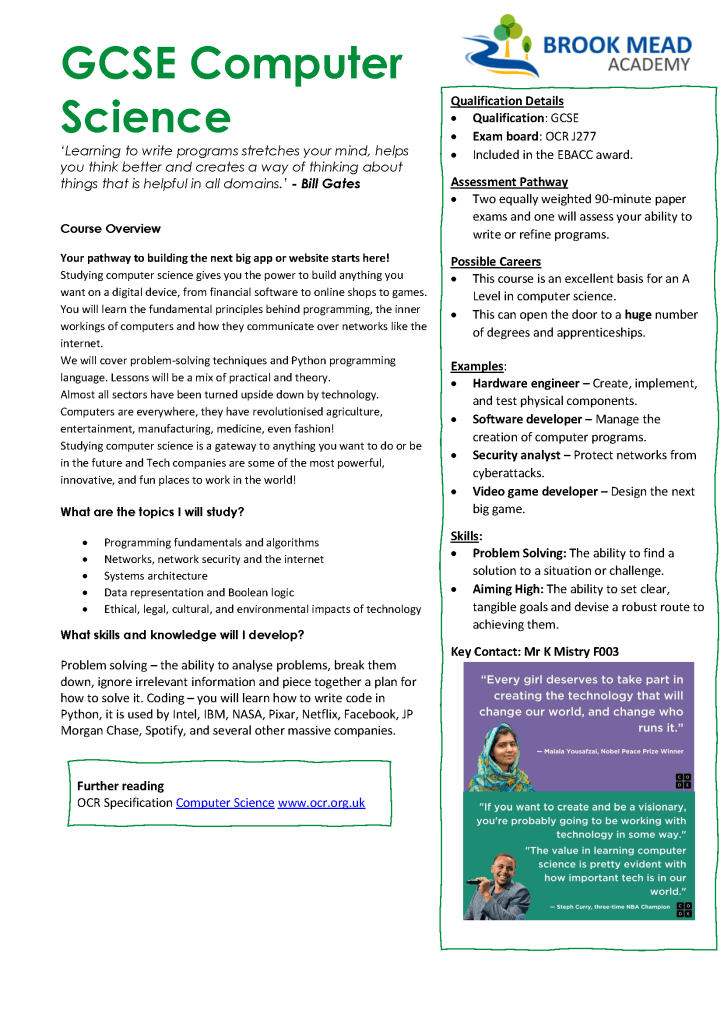Computer science empowers scholars with the ability to control and manipulate computers. Every lesson offers scholars the opportunity to explore the digital world, to understand how computers work and why they work the way they do. The aim of the curriculum is to spark a lasting passion in the subject of computer science and provide a platform from which scholars can be and create anything they want in the future. The curriculum ensures all scholars have the skills needed for a successful future using digital media where they can safely find, evaluate, create and communicate information. Computer science augments these skills with problem solving and programming that empowers scholars with the ability and freedom to create anything. The subject promotes problem solving through computational thinking: scholars use abstraction, decomposition, algorithmic thinking and pattern recognition to design creative solutions. Scholars can use the programming skills they learn here as steppingstones to a successful future in the dynamic, growing and exciting world of tech.
Subject Leader/s
Mr Mistry

